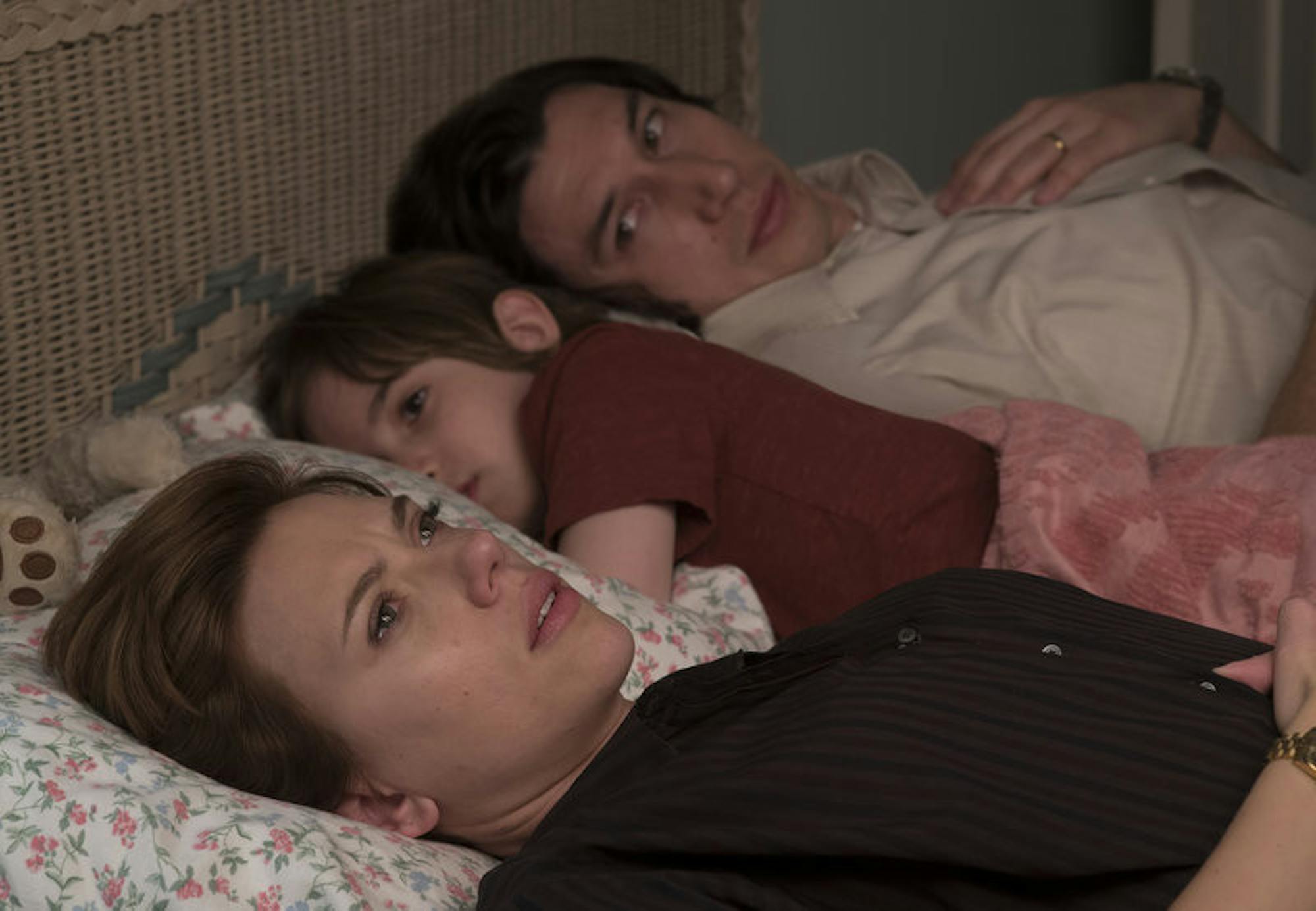
Criminal lawyers see bad people at their best, and divorce lawyers see good people at their worst. This is a sentiment echoed by Jay (Ray Liotta), one of the main divorce lawyers in Noah Baumbach’s masterful new film “Marriage Story.” Adam Driver and Scarlett Johansson give stunning performances as Charlie and Nicole Barber, a major theater director and a star actress both pushed to their limits in the process of a grueling divorce. “Marriage Story” is an astounding, devastating film which presents this separation in the most human and realistic ways a film can.
The film doesn’t begin with brutal courtroom battles or vicious custody fights, despite both being on the horizon. They start out with a facade of amiability as Charlie and Nicole agree that they want to carry out the divorce fairly and without lawyers. And for a while, this approach works. They both manage to get along with each other when they have to, although they are not without their arguments and rough patches. When Nicole drinks too much and slips on her way down the stairs, it is Charlie who is there to catch her. When Charlie wins his MacArthur grant, Nicole is the first to congratulate and embrace him.
Without prior knowledge, a viewer likely would not be able to even discern that the couple would head down the path that they end up at. The film begins with two montages showing the couple’s happy marriage from both Charlie's and Nicole’s perspective. It’s a sequence that elicits warmth. Yet the illusion is shattered when it is revealed that these perspectives were letters that each wrote at the beginning of the separation process to remind them that the other person was, in fact, human. And the point of the letters is moot, as Nicole is so furious with Charlie that she can’t even bring herself to read the letter.
The first few scenes of “Marriage Story” capture Nicole and Charlie at odds with each other. They can barely look at each other as they head home from a play that Charlie directs and Nicole stars in, although they do speak to each other about how it went once they get home. They aren’t happy with each other, but they can be around each other without being unpleasant. And when Nicole travels to Los Angeles and Charlie comes to visit, moments of kindness slip in, and all does not seem lost. However, neither character is particularly adept at communicating with the other, often using other people and lawyers to give the other important information. The moments of the film where we see them at their truest are when each give their own rendition of songs from the Stephen Sondheim musical “Company.” Nicole performs “You Could Drive a Person Crazy” with her family at a party, and Charlie performs “Being Alive” at a bar surrounded by his theater partners. While the songs aren’t explicitly about their former marriage, it isn’t hard to see why they perform with such emotion, as the contents of the songs are fairly relevant to what they are feeling about what they are going through. Of course, for each of their respective moments of openness through song, the other isn’t around to see it.
As the film progresses, Charlie and Nicole call their lawyers, fight over custody and say hurtful things to one another, despite both of their original intentions. The film crescendos into a stunningly intense fight scene, which stems from a last-ditch attempt to resolve things amicably. This fight works so well because it is a brutally realistic depiction of a situation that many wish to avoid but sometimes find themselves in. And most of the film works like this.
Baumbach’s strength as a filmmaker is depicting upper middle-class New York life in his own form of realism. A viewer can expect this from just about any of his films; however, in “Marriage Story,” Baumbach reaches a new level as a filmmaker. Out of all his films, “Marriage Story” feels the truest to being a picture of real, unfiltered life rather than a series of situations conceived of, written down and then filmed by a director, cast and crew. It also happens to be his best movie to date and one of the most defining films about divorce ever made.
From a technical perspective, it’s difficult to find any shortfalls in “Marriage Story.” It has the best cinematography in Baumbach’s films to date, the acting is tremendous and the score by Randy Newman is one of the sweetest and most heartrending of the year.
Ideologically, there will be those that call out “Marriage Story” over whose “side” the film is on. Already, one can search and find articles that complain that the film takes either Charlie’s side or Nicole’s side. However, it is not the film that takes sides but those who critique it for taking sides. Neither character deserves ardent affection nor fervent ire. The point of the film is to present two good people at their worst, not to present one good person and one bad person. And, provided a viewer doesn’t take sides, they will find that this film accomplishes what it set out to accomplish exceptionally well.
Grade: A








